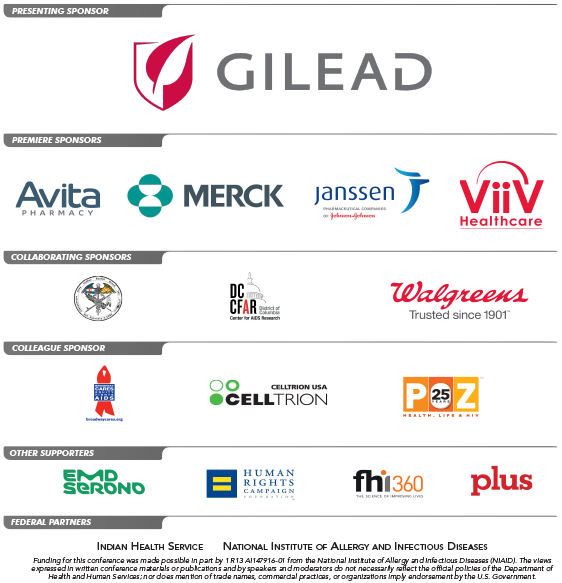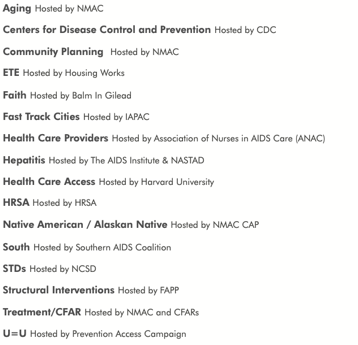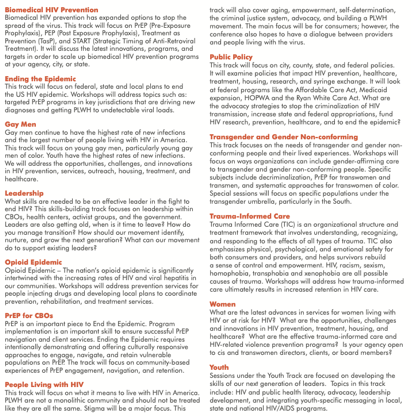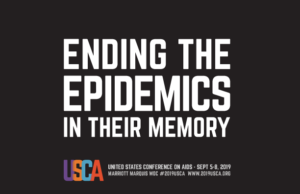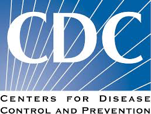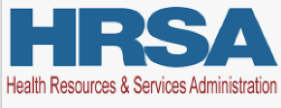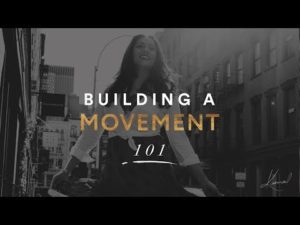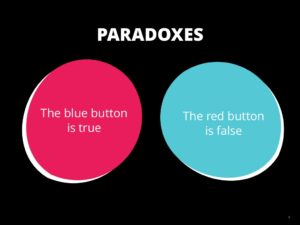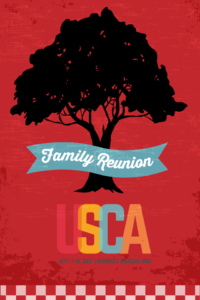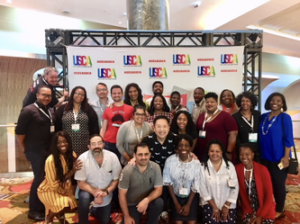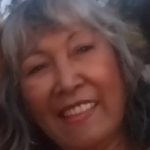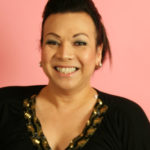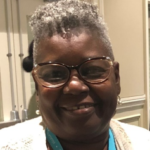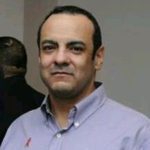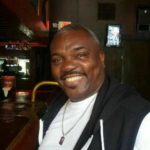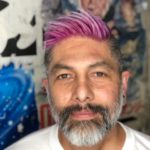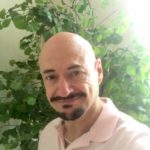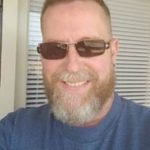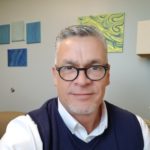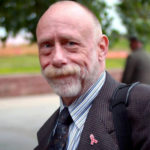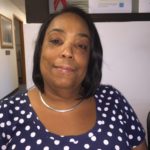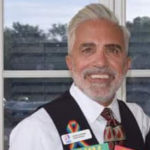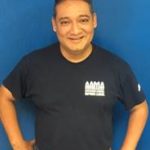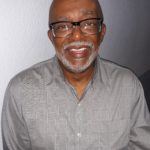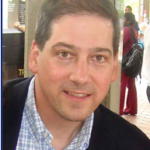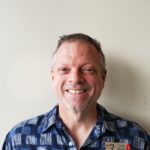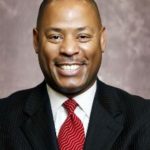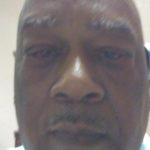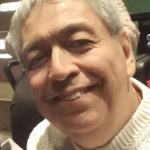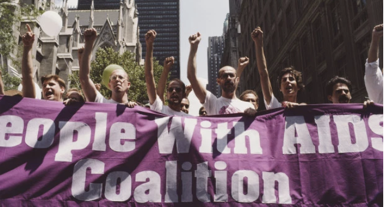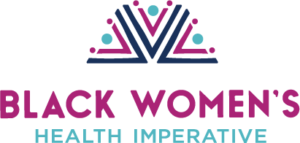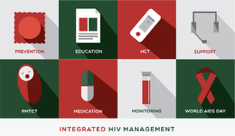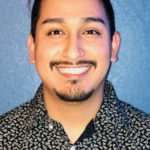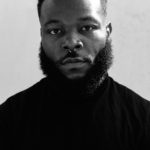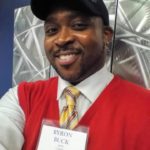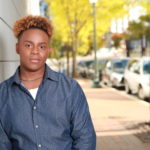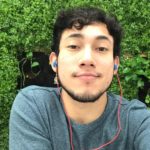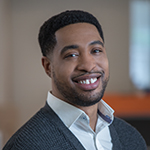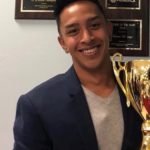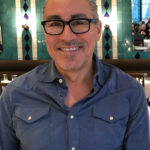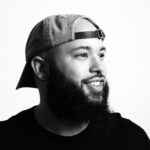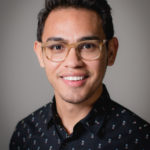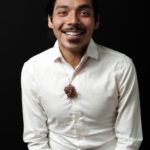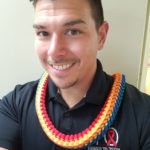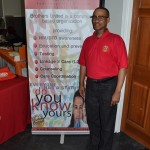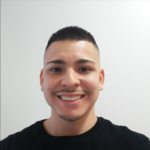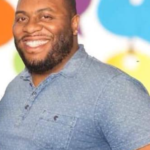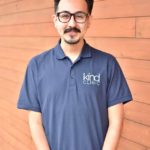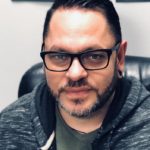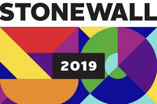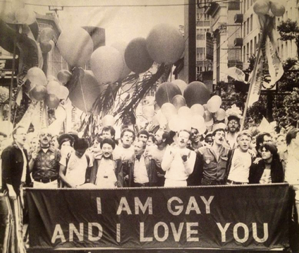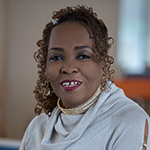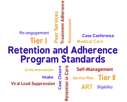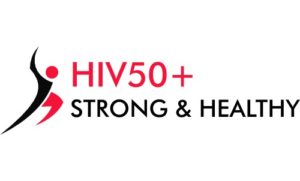 The HIV 50+ Strong and Healthy Program offers support and engagement opportunities for those HIV-positive and over the age of 50 who struggle with isolation and the need to overcome depression. The HIV 50+ program allows them to reinvent themselves and become active and productive individuals in the community. The program is composed of 51 individuals who either work with or are HIV positive and over the age of 50 years old. The program consists of educational webinars, mini-grant and internship opportunities, sponsorships to conferences and involvement at the United States Conference on AIDS (USCA).
The HIV 50+ Strong and Healthy Program offers support and engagement opportunities for those HIV-positive and over the age of 50 who struggle with isolation and the need to overcome depression. The HIV 50+ program allows them to reinvent themselves and become active and productive individuals in the community. The program is composed of 51 individuals who either work with or are HIV positive and over the age of 50 years old. The program consists of educational webinars, mini-grant and internship opportunities, sponsorships to conferences and involvement at the United States Conference on AIDS (USCA).
Congratulations to this year’s scholars! Since we have 51 Scholars, we will recognize them in two parts.
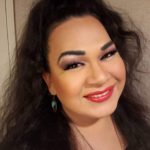 Alexa Elizabeth Rodriguez is originally from Usulután, El Salvador. Her passion is defend Transgender and people living with HIV rights. She founded the first working and support group for people living with HIV and Trans Women, in her hometown “Mi Nueva Familia” (My New Family). Alexa has continue her work in the DMV (DC, Maryland and Virginia) with many organization including DC Health Department. She is the Director of the Trans-Latinx DMV a Two-Spirit led organization that centers the needs of Black & Indigenous Trans-Latinx people living in Washington DC, Maryland and Virginia, that function as regional Chapter of The National Trans-Latin@ Coalition. Alexa has been awarded with many recognitions. She has been an activist for 16 years fighting for the rights of the HIV positive and members of the transgender community. As a transgender and HIV positive individual, Alexa will continue to fight to make sure her community does not fail.
Alexa Elizabeth Rodriguez is originally from Usulután, El Salvador. Her passion is defend Transgender and people living with HIV rights. She founded the first working and support group for people living with HIV and Trans Women, in her hometown “Mi Nueva Familia” (My New Family). Alexa has continue her work in the DMV (DC, Maryland and Virginia) with many organization including DC Health Department. She is the Director of the Trans-Latinx DMV a Two-Spirit led organization that centers the needs of Black & Indigenous Trans-Latinx people living in Washington DC, Maryland and Virginia, that function as regional Chapter of The National Trans-Latin@ Coalition. Alexa has been awarded with many recognitions. She has been an activist for 16 years fighting for the rights of the HIV positive and members of the transgender community. As a transgender and HIV positive individual, Alexa will continue to fight to make sure her community does not fail.
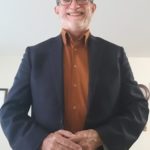 Angel Luis Hernandez was born and lives in Puerto Rico. Diagnosed with AIDS in 2003, with a poor prognosis, it took him 6 years to “get out of the closet” of HIV. Since 2010, Angel has been involved as a community representative in various local, national and international boards and organizations. As advocate, he believes there is still a need for education around HIV, and still much more work to do to address the social determinants of health of persons living with HIV and AIDS. A key element of Angel’s advocacy work is to empower and support persons living with HIV and AIDS. As HIV Community Educator, he has received scholarships to attend various national and international conferences. Angel helps members of the general community understand the science of HIV and AIDS to ensure community concerns are considered.
Angel Luis Hernandez was born and lives in Puerto Rico. Diagnosed with AIDS in 2003, with a poor prognosis, it took him 6 years to “get out of the closet” of HIV. Since 2010, Angel has been involved as a community representative in various local, national and international boards and organizations. As advocate, he believes there is still a need for education around HIV, and still much more work to do to address the social determinants of health of persons living with HIV and AIDS. A key element of Angel’s advocacy work is to empower and support persons living with HIV and AIDS. As HIV Community Educator, he has received scholarships to attend various national and international conferences. Angel helps members of the general community understand the science of HIV and AIDS to ensure community concerns are considered.
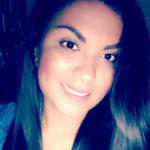 Angelica Gallegos, Case Management Supervisor, has been employed with Access and Information Network (AIN) in Dallas, TX since 2017. She has her master’s in social work from Texas A&M Commerce and a Bachelor’s in Social Work from Texas Woman’s University. She is currently on the Dallas HIV Task Force and the Latinx Task Force Work Group. Angelica has worked in the social work field for 6+ years, advocating for service, justice and the dignity and worth of each individual.
Angelica Gallegos, Case Management Supervisor, has been employed with Access and Information Network (AIN) in Dallas, TX since 2017. She has her master’s in social work from Texas A&M Commerce and a Bachelor’s in Social Work from Texas Woman’s University. She is currently on the Dallas HIV Task Force and the Latinx Task Force Work Group. Angelica has worked in the social work field for 6+ years, advocating for service, justice and the dignity and worth of each individual.
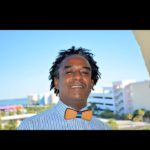 Arthur Jackson is a respected and innovative national community educator of HIV Prevention, Education and Care Services, in Indianapolis, Indiana, working as the Linkage to Care Coordinator for BU Wellness Network. Born and raised in Orange, New Jersey, Art graduated from Orange High School in 1983 and attended Penn State University. Moving to Harlem, New York, Art has witnessed the evolution of HIV/AIDS from its inception to how we are currently living and dealing with this virus today. Since being diagnosed in January 1989 Art has tried to be an avid and dedicated fighter for those living with this disease.
Arthur Jackson is a respected and innovative national community educator of HIV Prevention, Education and Care Services, in Indianapolis, Indiana, working as the Linkage to Care Coordinator for BU Wellness Network. Born and raised in Orange, New Jersey, Art graduated from Orange High School in 1983 and attended Penn State University. Moving to Harlem, New York, Art has witnessed the evolution of HIV/AIDS from its inception to how we are currently living and dealing with this virus today. Since being diagnosed in January 1989 Art has tried to be an avid and dedicated fighter for those living with this disease.
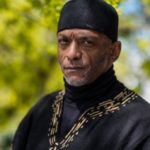 Bryan Jones has been thriving with AIDS for 35 years an advocating half that time . He is a Founding Steering Committee Memeber of U=U and has spoken internationally on U= U. He performs a one man theatrical conversation entitled A.I.D S….- And I Die Slowly throughout the U.S and abroad. He us the proud recipient of the Equitas Health Trailblazer Award for lifelong committment to the LGBTQ community and HIV. Bryan was chosen this year by the Body .Com as one of their Game Changers in HIV Advocacy. Mr. Jones is the Founder of the Dirt Advocacy Movement And has been working on Modernizing HIV criminalization laws for several years.
Bryan Jones has been thriving with AIDS for 35 years an advocating half that time . He is a Founding Steering Committee Memeber of U=U and has spoken internationally on U= U. He performs a one man theatrical conversation entitled A.I.D S….- And I Die Slowly throughout the U.S and abroad. He us the proud recipient of the Equitas Health Trailblazer Award for lifelong committment to the LGBTQ community and HIV. Bryan was chosen this year by the Body .Com as one of their Game Changers in HIV Advocacy. Mr. Jones is the Founder of the Dirt Advocacy Movement And has been working on Modernizing HIV criminalization laws for several years.
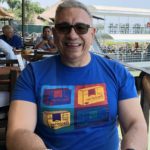 Carlos Carmona is an HIV long-term survivor of 29 years and an activist and advocate for people living with HIV (PLWH) for over 15 years. He currently resides in San Antonio, Tx and continues to be a voice for the HIV community breaking down stigma and bringing awareness about HIV.
Carlos Carmona is an HIV long-term survivor of 29 years and an activist and advocate for people living with HIV (PLWH) for over 15 years. He currently resides in San Antonio, Tx and continues to be a voice for the HIV community breaking down stigma and bringing awareness about HIV.
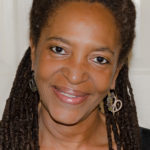 Cecilia Dennis is currently located in Phoenix, AZ is a Building Leaders of Color Trainer of Trainers, PWN-USA AZ State Lead, and serves on Maricopa Integrated Health System Community Advisory Board. Currently, Cecilia provides effective risk reduction education in group and one-on-one settings, along with public speaking. She also hosts community events, disseminates materials, and conducts HIV/STI testing.
Cecilia Dennis is currently located in Phoenix, AZ is a Building Leaders of Color Trainer of Trainers, PWN-USA AZ State Lead, and serves on Maricopa Integrated Health System Community Advisory Board. Currently, Cecilia provides effective risk reduction education in group and one-on-one settings, along with public speaking. She also hosts community events, disseminates materials, and conducts HIV/STI testing.
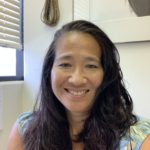 Christine Kapiioho is a Native Hawaiian and Okinawan. She lives on the island of Maui and in September 2019 she will have worked for Maui AIDS Foundation for 10 years. She started as a case manager with 50 clients and in 2012 became Director of Client Services and works with two caring, competent medical case managers for 150+ clients. She is honored to be selected as a scholarship recipient and hopes to continue to bring innovative information to her clients, especially her 50+ year old clients on the islands of Maui, Molokai and Lanai.
Christine Kapiioho is a Native Hawaiian and Okinawan. She lives on the island of Maui and in September 2019 she will have worked for Maui AIDS Foundation for 10 years. She started as a case manager with 50 clients and in 2012 became Director of Client Services and works with two caring, competent medical case managers for 150+ clients. She is honored to be selected as a scholarship recipient and hopes to continue to bring innovative information to her clients, especially her 50+ year old clients on the islands of Maui, Molokai and Lanai.
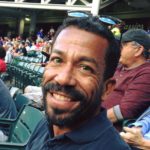 David “Jax” Kelly is the president of Let’s Kick A.S.S. (AIDS Survivor Syndrome) – Palm Springs Chapter (LKAPS.org). He has been thriving with AIDS since 2006. He is a member of Cleveland AIDS Clinical Trials Unit Community Advisory Board.
David “Jax” Kelly is the president of Let’s Kick A.S.S. (AIDS Survivor Syndrome) – Palm Springs Chapter (LKAPS.org). He has been thriving with AIDS since 2006. He is a member of Cleveland AIDS Clinical Trials Unit Community Advisory Board.
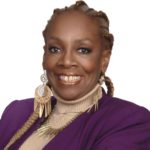 Dawn Breedon is an HIV positive motivational speaker, Certified Life Coach, activist, and author of REMEMBER TO BREATHE. Dawn continues to educate herself to help others pull through adverse situations. She graduated with honors from Lincoln University in Pennsylvania with a Masters of HumanServices Degree, where she was inducted into the Pi Gamma Mu International Honor Society for Social Sciences. Dawn holds a certificate in Evidenced Based Coaching from Fielding Graduate University.
Dawn Breedon is an HIV positive motivational speaker, Certified Life Coach, activist, and author of REMEMBER TO BREATHE. Dawn continues to educate herself to help others pull through adverse situations. She graduated with honors from Lincoln University in Pennsylvania with a Masters of HumanServices Degree, where she was inducted into the Pi Gamma Mu International Honor Society for Social Sciences. Dawn holds a certificate in Evidenced Based Coaching from Fielding Graduate University.
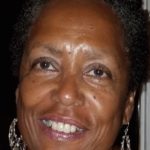 Denise Drayton is a 68-year-old Mother of Christal and George, Grandmother to Kevin and Cameron. She tested HIV positive on September 1993. She is the community Liaison for ACRIA Centers on Aging at GMHC. She is dedicated to providing HIV prevention education to those at risk for HIV. She is also a Faithful servant of Healing Touch HIV Ministry at Emmanuel Baptist Church.
Denise Drayton is a 68-year-old Mother of Christal and George, Grandmother to Kevin and Cameron. She tested HIV positive on September 1993. She is the community Liaison for ACRIA Centers on Aging at GMHC. She is dedicated to providing HIV prevention education to those at risk for HIV. She is also a Faithful servant of Healing Touch HIV Ministry at Emmanuel Baptist Church.
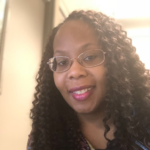 Diana Goodie is currently employed as a Medical Case Manager/ Ryan White Eligibility Specialist at East Carolina University Adult Specialty Care. Diana has been actively involved in working with PLWH for more than 18 years and has developed a passion for serving the aging population as evidenced by her advocacy & supportive efforts. She has become a Certified Dementia Practitioner and is currently pursuing certification in Gerontology. Diana is committed to empower, educate and reduce barriers that effect PLWH in Eastern North Carolina.
Diana Goodie is currently employed as a Medical Case Manager/ Ryan White Eligibility Specialist at East Carolina University Adult Specialty Care. Diana has been actively involved in working with PLWH for more than 18 years and has developed a passion for serving the aging population as evidenced by her advocacy & supportive efforts. She has become a Certified Dementia Practitioner and is currently pursuing certification in Gerontology. Diana is committed to empower, educate and reduce barriers that effect PLWH in Eastern North Carolina.
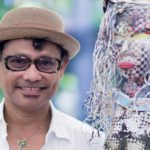 Emilio Apontesierra-Paretti is an asylee from Colombia with a masters degree in Education in Guidance Counseling. He focuses his work in Public Health as a Certify Community Health Worker, particularly the issues of HIV/AIDS Prevention and Care. Aponte was the Chair of both, Latinx and MSM Advisors Groups of the Broward County HIV Prevention Planning Council until he leave Florida Department of Health in Broward in January of 2019. Currently is the Behavioral Health Interventions Supervisor of High Impacto, Inc. Aponte also is an artist that use his art as a tool of community mobilization towards awareness, education and actions for HIV/AIDS prevention.
Emilio Apontesierra-Paretti is an asylee from Colombia with a masters degree in Education in Guidance Counseling. He focuses his work in Public Health as a Certify Community Health Worker, particularly the issues of HIV/AIDS Prevention and Care. Aponte was the Chair of both, Latinx and MSM Advisors Groups of the Broward County HIV Prevention Planning Council until he leave Florida Department of Health in Broward in January of 2019. Currently is the Behavioral Health Interventions Supervisor of High Impacto, Inc. Aponte also is an artist that use his art as a tool of community mobilization towards awareness, education and actions for HIV/AIDS prevention.
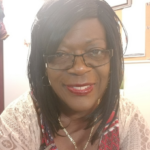 Esther Sarteh Ross-Hines works as the Associate Program Manager/Region 10 Network Coordinator at East Carolina University Adult Specialty Care Clinic in Greenville, NC. She helped mobilize 1st ever advocacy team in Eastern North Carolina dubbed “WE Team of the East, Girls on Fire,” women empowerment group tasked with advocating and leveraging policies to help POCLWH achieve and sustain the highest quality of care. Esther is now in her 26th year of surviving, striving and thriving with HIV, living the golden life at the age of 58. Esther as the graduate of NMAC, Building Leaders of Color; HIV 50+ Strong & Healthy Scholar and GLOW (Growing Leadership Opportunities for Women) implemented a project called “LAMPS” (Leaders, Advocating, Mentoring Personal growth & Support) that provided education, using BLOC Curriculum, to empower POCLWH 50+ to mentor other peers become meaningfully involve within service delivery systems and infrastructures that impact POCLWH in Eastern North Carolina.
Esther Sarteh Ross-Hines works as the Associate Program Manager/Region 10 Network Coordinator at East Carolina University Adult Specialty Care Clinic in Greenville, NC. She helped mobilize 1st ever advocacy team in Eastern North Carolina dubbed “WE Team of the East, Girls on Fire,” women empowerment group tasked with advocating and leveraging policies to help POCLWH achieve and sustain the highest quality of care. Esther is now in her 26th year of surviving, striving and thriving with HIV, living the golden life at the age of 58. Esther as the graduate of NMAC, Building Leaders of Color; HIV 50+ Strong & Healthy Scholar and GLOW (Growing Leadership Opportunities for Women) implemented a project called “LAMPS” (Leaders, Advocating, Mentoring Personal growth & Support) that provided education, using BLOC Curriculum, to empower POCLWH 50+ to mentor other peers become meaningfully involve within service delivery systems and infrastructures that impact POCLWH in Eastern North Carolina.
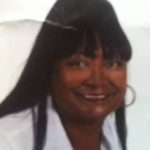 Franceina Hopkins is a Public Speaker, Outreach Specialist, Advocate, Recruiter, Linkage to Care Specialist, Trainer and a Leader. She was born in a rural area in Hampton County but currently lives in Lexington, SC, also rural. When she came to Columbia, SC, she was introduced to the organization, Women Helping Women, a group linked through LRADAC (Lexington Richland Alcohol Drug Abuse Council). Franceina is a Lead Recruiter for WISE Women (Women in Support of Empowerment) at PALSS (Palmetto AIDS Life Support Services).
Franceina Hopkins is a Public Speaker, Outreach Specialist, Advocate, Recruiter, Linkage to Care Specialist, Trainer and a Leader. She was born in a rural area in Hampton County but currently lives in Lexington, SC, also rural. When she came to Columbia, SC, she was introduced to the organization, Women Helping Women, a group linked through LRADAC (Lexington Richland Alcohol Drug Abuse Council). Franceina is a Lead Recruiter for WISE Women (Women in Support of Empowerment) at PALSS (Palmetto AIDS Life Support Services).
 Janice Shirley is a Certified Peer Support Specialist for the state of North Carolina and an advance Level Facilitator. Her goals are to continue to work with her brother and sister in this field to ensure they have the necessary information to live and have a comfortable life. She is working toward getting rid of STIGMA in the HIV arena.
Janice Shirley is a Certified Peer Support Specialist for the state of North Carolina and an advance Level Facilitator. Her goals are to continue to work with her brother and sister in this field to ensure they have the necessary information to live and have a comfortable life. She is working toward getting rid of STIGMA in the HIV arena.
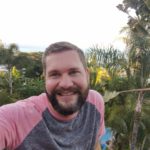 Jared Hafen joined the Utah AIDS Foundation as Case Manager in 2014, and became Director of Programming in 2016. Jared has a master’s in social work from University of Nevada, Las Vegas, and has worked in the field of HIV for more than 15 years, beginning as a volunteer in HIV prevention and education at Western Colorado AIDS Project. In addition to his duties as Programming Director, Jared facilitates a weekly men’s HIV support group, and puts great value in connecting with participants and educating and empowering people living with HIV through the simple acts of respect, compassion, and commitment to serve.
Jared Hafen joined the Utah AIDS Foundation as Case Manager in 2014, and became Director of Programming in 2016. Jared has a master’s in social work from University of Nevada, Las Vegas, and has worked in the field of HIV for more than 15 years, beginning as a volunteer in HIV prevention and education at Western Colorado AIDS Project. In addition to his duties as Programming Director, Jared facilitates a weekly men’s HIV support group, and puts great value in connecting with participants and educating and empowering people living with HIV through the simple acts of respect, compassion, and commitment to serve.
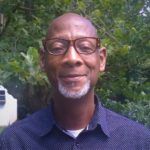 Jeffery Edwards-Knight is a 56-year-old gay, Black male who has lived with HIV for 33 years. He resides in Charlotte, NC where he has lived for 34 years. He works at the Mecklenburg County Health Department where he supervises the HIV/STD community testing and outreach team.
Jeffery Edwards-Knight is a 56-year-old gay, Black male who has lived with HIV for 33 years. He resides in Charlotte, NC where he has lived for 34 years. He works at the Mecklenburg County Health Department where he supervises the HIV/STD community testing and outreach team.
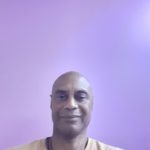 Jeffery A. Haskins is a graduate of Howard and Columbia University. He has held many positions in government, non-profits, and business. He currently works as the Project TEACH Lead Coordinator at Philadelphia FIGHT Community Health Centers. Reverend Haskins is the Pastor of Unity Fellowship of Christ Church Philadelphia. He was a Recovery Counselor for COMHAR (Community Mental Health, Addiction and Rehabilitation). Jeffery is also the Producing Director of PAPA (Producing Association of the Performing Arts) where he has written and starred in his one man show entitled the 26 Project about the number of friends and family members we have lost to the AIDS epidemic. He is a founding member of the New York State, Black Gay Men’s and Health and Human Services Networks.
Jeffery A. Haskins is a graduate of Howard and Columbia University. He has held many positions in government, non-profits, and business. He currently works as the Project TEACH Lead Coordinator at Philadelphia FIGHT Community Health Centers. Reverend Haskins is the Pastor of Unity Fellowship of Christ Church Philadelphia. He was a Recovery Counselor for COMHAR (Community Mental Health, Addiction and Rehabilitation). Jeffery is also the Producing Director of PAPA (Producing Association of the Performing Arts) where he has written and starred in his one man show entitled the 26 Project about the number of friends and family members we have lost to the AIDS epidemic. He is a founding member of the New York State, Black Gay Men’s and Health and Human Services Networks.
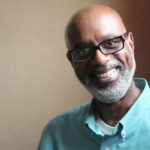 Joel Caudle knows firsthand the importance of finding support soon after a positive diagnosis. He first connected with Nashville CARES as a client in 2003 after learning he had HIV. He now works as a Medical Case Manager Associate for My House, an offsite health and wellness center operated by Nashville CARES, in conjunction with the organizations Neighborhood Health and Streetworks. As a member of the My House team, Joel offers tailored information and services to same-gender-loving men of color, including STI testing, Pre-exposure prophylaxis (PrEP), treatment adherence skills and status disclosure support. Of his work, Joel says, “I use every day that I come to work as an opportunity to empower people with the will to live.”
Joel Caudle knows firsthand the importance of finding support soon after a positive diagnosis. He first connected with Nashville CARES as a client in 2003 after learning he had HIV. He now works as a Medical Case Manager Associate for My House, an offsite health and wellness center operated by Nashville CARES, in conjunction with the organizations Neighborhood Health and Streetworks. As a member of the My House team, Joel offers tailored information and services to same-gender-loving men of color, including STI testing, Pre-exposure prophylaxis (PrEP), treatment adherence skills and status disclosure support. Of his work, Joel says, “I use every day that I come to work as an opportunity to empower people with the will to live.”
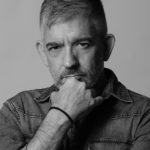 Joey Pons was diagnosed in 1987 and has been an activist of people living with HIV since then. He began his involvement in New York City with ACT-UP (AIDS Coalition to Unleash Power). He is a Project Manager in Policy, Strategic Planning and Community Engagement. In his extensive involvement in the field of HIV advocacy, Mr. Pons has participated in countless conferences as a lecturer on Human Rights, HIV/AIDS and Community Organizing. Additionally, he has distinguished himself as a respected lobbyist in matters of human rights and HIV.
Joey Pons was diagnosed in 1987 and has been an activist of people living with HIV since then. He began his involvement in New York City with ACT-UP (AIDS Coalition to Unleash Power). He is a Project Manager in Policy, Strategic Planning and Community Engagement. In his extensive involvement in the field of HIV advocacy, Mr. Pons has participated in countless conferences as a lecturer on Human Rights, HIV/AIDS and Community Organizing. Additionally, he has distinguished himself as a respected lobbyist in matters of human rights and HIV.
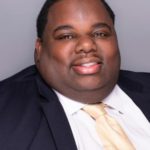 Kenneth Johnson is currently a Program Manager at Abounding Prosperity, Inc. He has been working in the field of HIV prevention and care for over 14 years. He also enjoys his role at AP Inc. and, working with his community. As apart of his role he manages an array of projects inclusive of working with the 50+ population living strong with HIV.
Kenneth Johnson is currently a Program Manager at Abounding Prosperity, Inc. He has been working in the field of HIV prevention and care for over 14 years. He also enjoys his role at AP Inc. and, working with his community. As apart of his role he manages an array of projects inclusive of working with the 50+ population living strong with HIV.
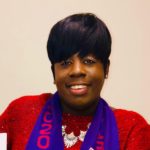 Kneeshe Parkinson is a Saint Louis native. She is a recent graduate with a bachelor’s in liberal studies with emphasis on sociology, psychology and gender studies from the University of Missouri Saint Louis. She is proud of the recent opportunity to be working with Empower Missouri were she is a graduate of the policy fellowship with Positive Women’s Network-USA (PWN) a program training and preparing participants to be effective advocates for policy change. In addition to being a PWN policy fellow, she is the PWN State Lead for Missouri.
Kneeshe Parkinson is a Saint Louis native. She is a recent graduate with a bachelor’s in liberal studies with emphasis on sociology, psychology and gender studies from the University of Missouri Saint Louis. She is proud of the recent opportunity to be working with Empower Missouri were she is a graduate of the policy fellowship with Positive Women’s Network-USA (PWN) a program training and preparing participants to be effective advocates for policy change. In addition to being a PWN policy fellow, she is the PWN State Lead for Missouri.
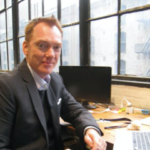 Since 1997, Michael Smith has worked on two different programs concurrently: a cutting-edge program assisting People Living with HIV/AIDS (PLWAs) addressing a variety of work, school, financial topics and concerns called The Phoenix Rising HIV/AIDS Re-entry Project (www.phoenixrisingreentry.org) and is a consultant at The Santa Fe Community Housing Trust’s HOPWA Homebuyer project, a unique program assisting PLWAs to stabilize their finances and obtain homeownership.
Since 1997, Michael Smith has worked on two different programs concurrently: a cutting-edge program assisting People Living with HIV/AIDS (PLWAs) addressing a variety of work, school, financial topics and concerns called The Phoenix Rising HIV/AIDS Re-entry Project (www.phoenixrisingreentry.org) and is a consultant at The Santa Fe Community Housing Trust’s HOPWA Homebuyer project, a unique program assisting PLWAs to stabilize their finances and obtain homeownership.
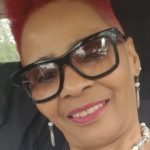 Michele Princeton has worked for the AIDS Taskforce of Greater Cleveland since 2006; her background includes Housing Case Management, Prevention Education, and Program Management. She has been repeatedly recognized for excellence in leading program development, service implementation, advocacy, and supportive counseling. She has served populations presenting a range of psychological disorders as well as emotional, behavioral, substance abuse and developmental challenges.
Michele Princeton has worked for the AIDS Taskforce of Greater Cleveland since 2006; her background includes Housing Case Management, Prevention Education, and Program Management. She has been repeatedly recognized for excellence in leading program development, service implementation, advocacy, and supportive counseling. She has served populations presenting a range of psychological disorders as well as emotional, behavioral, substance abuse and developmental challenges.
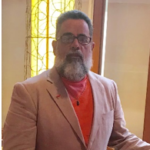 Miguel Ángel Delgado Ramos Lives in Cidra, Puerto Rico the town of eternal spring. He has a Bachelor of Business Administration from the University of the Sacred Heart in Santurce, PR. Is Co-Founder of the Association of Small Farmers of Rabanal, Inc. He has received medical services at COSSMA, Inc., a community health center since 2003 and joined his Board of Directors in 2014. In September 2018 he was awarded an scholarship by NMAC to participate in the HIV 50+ Strong and Healthy Program. Funded by NMAC and in collaboration with COSSMA, INC., and NeoMed Clínic, INC., develop the “VIHVIENDO Fuerte y Saludable” program aimed at HIV positive people over 50.
Miguel Ángel Delgado Ramos Lives in Cidra, Puerto Rico the town of eternal spring. He has a Bachelor of Business Administration from the University of the Sacred Heart in Santurce, PR. Is Co-Founder of the Association of Small Farmers of Rabanal, Inc. He has received medical services at COSSMA, Inc., a community health center since 2003 and joined his Board of Directors in 2014. In September 2018 he was awarded an scholarship by NMAC to participate in the HIV 50+ Strong and Healthy Program. Funded by NMAC and in collaboration with COSSMA, INC., and NeoMed Clínic, INC., develop the “VIHVIENDO Fuerte y Saludable” program aimed at HIV positive people over 50.
 The 2019 United States Conference on AIDS is sold out! The good news is that more people than ever want to learn about the federal plan to end the domestic HIV epidemic. Thank you for the overwhelming response. We understand this is an important year. I also know this is disappointing for some and I apologize for any inconvenience it causes. The online registration portal will stay open until August 23rd, then it will close. We will not accept any onsite registrations.
The 2019 United States Conference on AIDS is sold out! The good news is that more people than ever want to learn about the federal plan to end the domestic HIV epidemic. Thank you for the overwhelming response. We understand this is an important year. I also know this is disappointing for some and I apologize for any inconvenience it causes. The online registration portal will stay open until August 23rd, then it will close. We will not accept any onsite registrations. Our primary concern has to be for the safety of attendees. You can only fit so many people into the hotel before it becomes dangerous. For those attending, there will be lines. We will do our best to make them move quickly and we appreciate your understanding.
Our primary concern has to be for the safety of attendees. You can only fit so many people into the hotel before it becomes dangerous. For those attending, there will be lines. We will do our best to make them move quickly and we appreciate your understanding.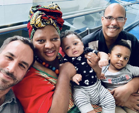 So many people living with HIV now have children. That is amazing and such a blessing. USCA offers child care for attendees from Playtime Sitters. This company is owed by Khadijah, who is part of the USCA Faith Coalition. Make your reservation in advance with Alison McKeithen. I remember a time when we focused solely on the medical needs of people living with HIV, so to have child care makes me so happy. I don’t think we could have imagined this reality in the early days of the epidemic.
So many people living with HIV now have children. That is amazing and such a blessing. USCA offers child care for attendees from Playtime Sitters. This company is owed by Khadijah, who is part of the USCA Faith Coalition. Make your reservation in advance with Alison McKeithen. I remember a time when we focused solely on the medical needs of people living with HIV, so to have child care makes me so happy. I don’t think we could have imagined this reality in the early days of the epidemic.
![]() To plenary and workshop leaders, thank you for volunteering your time, talent and expertise. USCA is first and foremost a training opportunity. This year there will be 160 workshop, four plenaries, and long lines. When giving your presentation, please do not use “other” when speaking about American Indians/Alaska Natives, Asians, or Pacific Islanders/Native Hawaiians. While I understand our sample size may be too small to have good data, it’s better to note that fact than to label us as “other” in order to balance your percentages.
To plenary and workshop leaders, thank you for volunteering your time, talent and expertise. USCA is first and foremost a training opportunity. This year there will be 160 workshop, four plenaries, and long lines. When giving your presentation, please do not use “other” when speaking about American Indians/Alaska Natives, Asians, or Pacific Islanders/Native Hawaiians. While I understand our sample size may be too small to have good data, it’s better to note that fact than to label us as “other” in order to balance your percentages. Please do not combine the transgender community with gay men. Once again, I understand if you don’t have that information because the data was not collected that way. It is better to note that fact in your presentation. This is not about being politically correct; it is about having real data to supports jurisdictional plans. How can we tell if we are ending HIV in the transgender community if we don’t have good data?
Please do not combine the transgender community with gay men. Once again, I understand if you don’t have that information because the data was not collected that way. It is better to note that fact in your presentation. This is not about being politically correct; it is about having real data to supports jurisdictional plans. How can we tell if we are ending HIV in the transgender community if we don’t have good data?